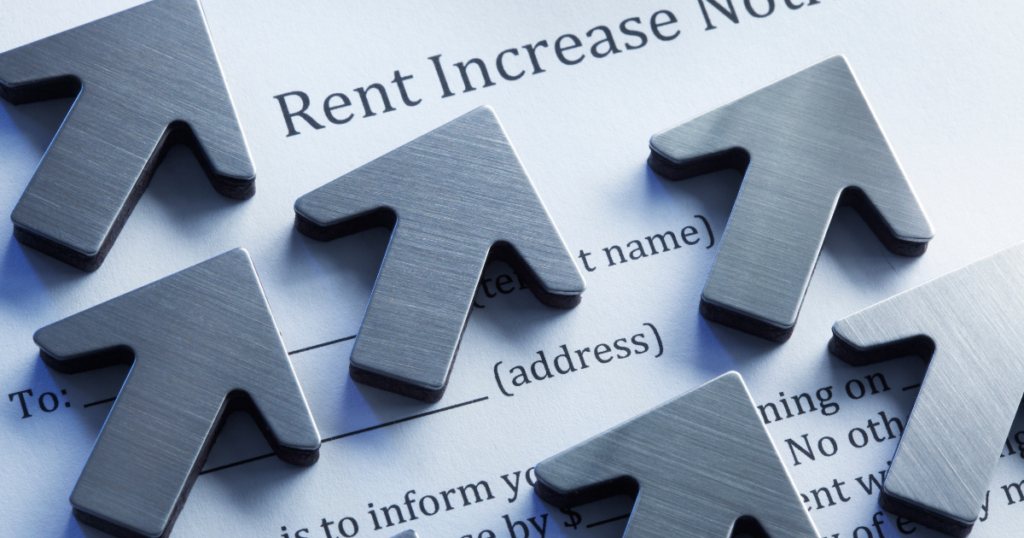
Outrageous Rent Increases Impact Americans
By Cassandra BrandtThis winter I was suddenly the only member of my immediate family not facing the very real possibility of homelessness. I’m disabled, so Medicare and my Disability checks pay for a room at an assisted living group home. My disability checks don’t pay enough for me to afford rent on a home by myself.
My parents had been renting a house that belonged to a church, whose staff decided to rent the home out to the new pastor. They were faced with a sudden search for a rental and were forced to rent a place they could barely afford. My dad had just retired after being a letter carrier for 40 years.
My daughter and her boyfriend were having a baby and needed to find a place of their own, too. They finally ended up buying a trailer because rentals were so scarce and outrageously overpriced. My brother had just moved for work and was crashing on a friend’s couch for a couple months because first and last month’s rent was such a lump sum. He ended up renting a room in a house full of comparably struggling millennials.
My family’s various predicaments which led to looking for rentals in 2022 could happen to just about anyone, and the outrageous cost of rent could have sent any of us to a homeless shelter.
If you’re already in a lease you’re lucky, but nothing can stop landlords from increasing prices for new renters—increases of often hundreds of dollars more a month lately.
In some cities, the rents are up nearly 40%, according to a recent survey. Parts of Florida, New York, New Jersey, and Texas are particularly suffering.
What’s responsible for this increase?
A lot of the reason is supply and demand. We need more housing, especially affordable housing.
The population is increasing. Multi-generation households want to split up and live more independently. Housing prices have increased so many people that may have planned to buy homes are looking to rent instead. The national eviction ban has lapsed, too, and evicted families are in the market to rent a new place.
Increased demand for rental properties has vacancies at an all-time low across the US.
So my retired parents, bachelor brother, and my daughter’s little family that is just starting out—they were competing for extremely limited housing with other evicted families, and families that couldn’t afford to buy and millennials moving out of their parents basements post-pandemic.
Landlords can charge so much because of the demand, and they do.
Why isn’t there enough housing?
Zoning laws that limit contractors are a major obstacle. Then there’s construction delays caused by pandemic-related supply chain disruptions and shortages of both workers and materials.
Wages are not increasing to make it possible for average Americans to afford to live independently and comfortably. Many of the half million homeless Americans could have afforded rent two years ago. For minimum-wage workers, even working two full-time jobs sometimes isn’t enough to rent their own apartment in many parts of the country. A single parent working minimum wage would have to work almost 100 hours a week to afford a two-bedroom apartment.
People living on limited incomes are particularly disadvantaged when rent skyrockets. Social security has increased payments for people with disabilities a few times, but not enough to actually allow us to keep up with the cost of living.
As an individual living with a severe mobility disability, I couldn’t afford to live independently. The average SSDI payment for an individual is $1,358, but almost two-thirds of SSDI recipients receive less than that. The average rent for a 1-bedroom apartment where I live (Arizona) is currently $1,305. This is a 23% increase compared to last year. Sometimes people with disabilities receive rental assistance like subsidized housing, but availability is extremely limited. A quarter of people experiencing homelessness have a disability.
There isn’t an end in sight right now. Economists say rent will be among the fastest growing portions of household expenses in coming years.
One way to support individuals and families struggling to keep roofs over their heads by participating in Secular Week of Action 2022 April 29th-May 8th.
Cassandra Brandt is a single mom from rural Arizona. A former traveling tradeswoman, she now lives with quadriplegia and writes and advocates full time.
